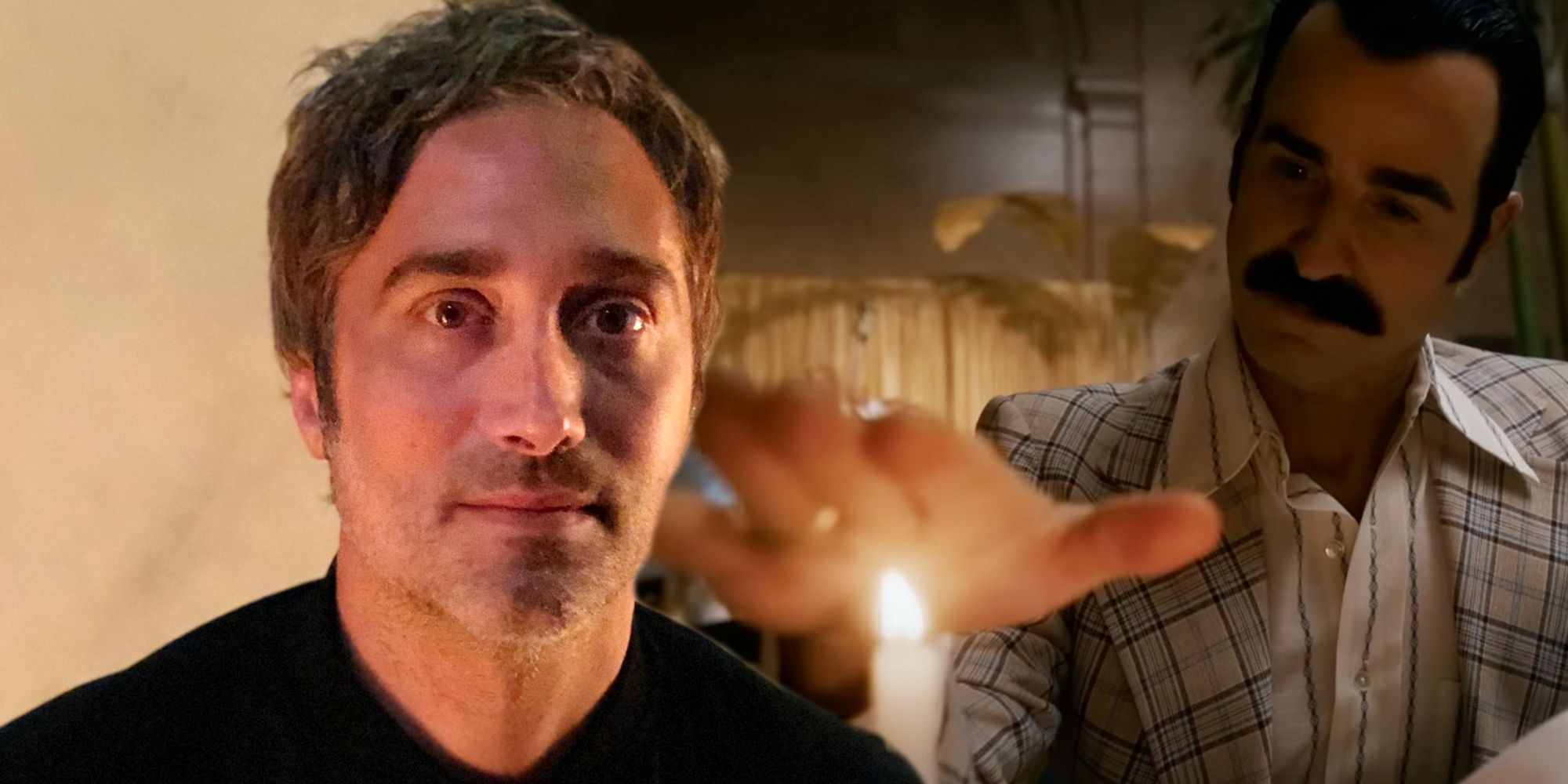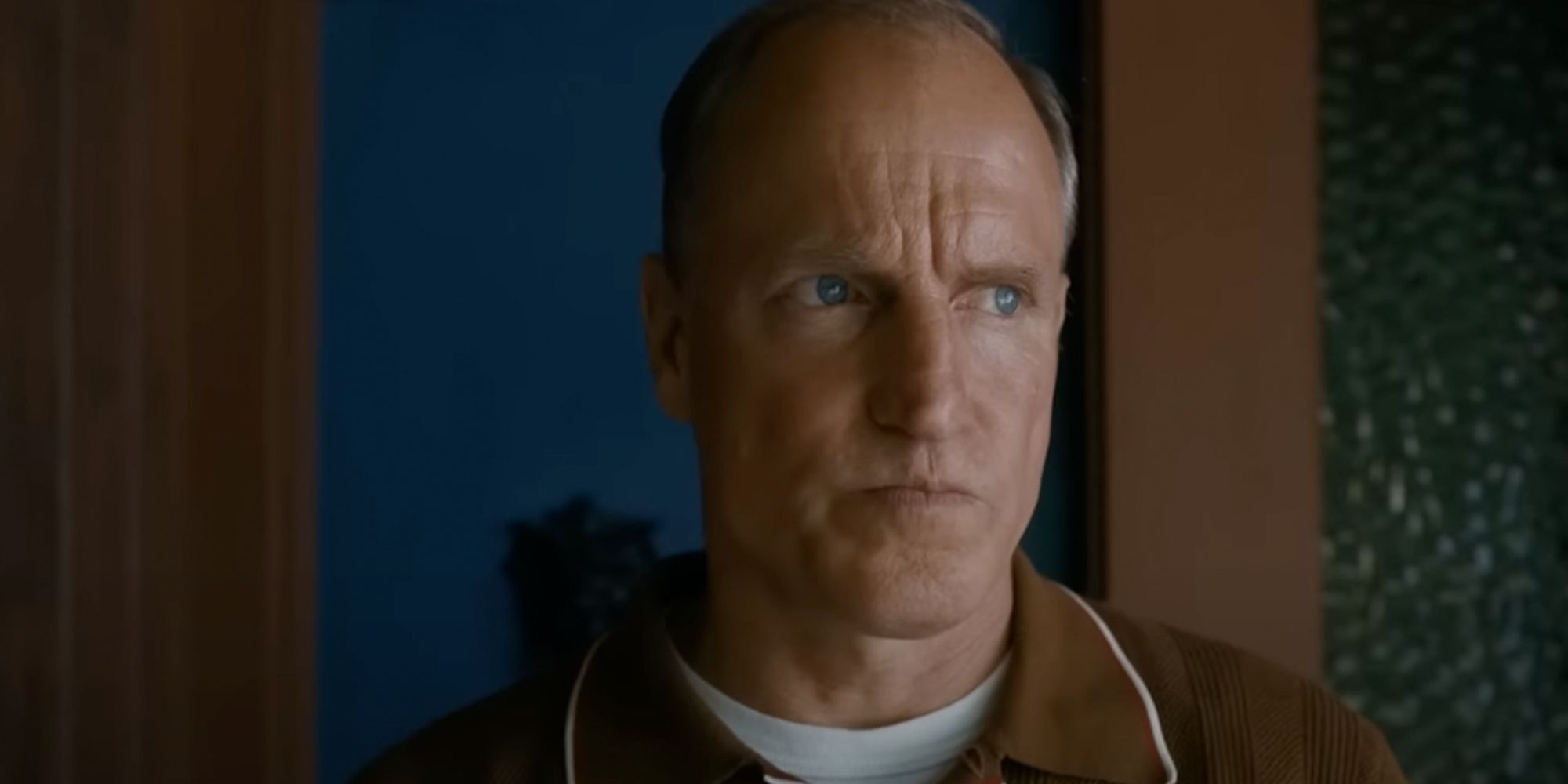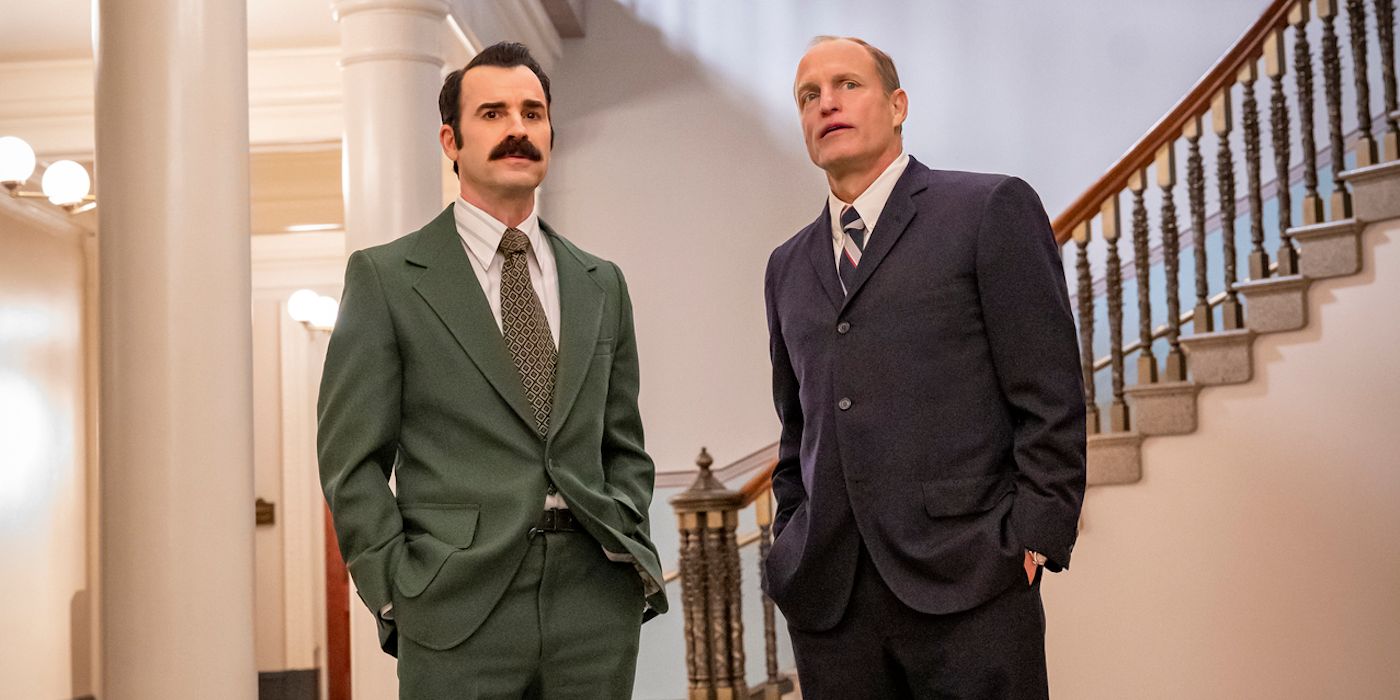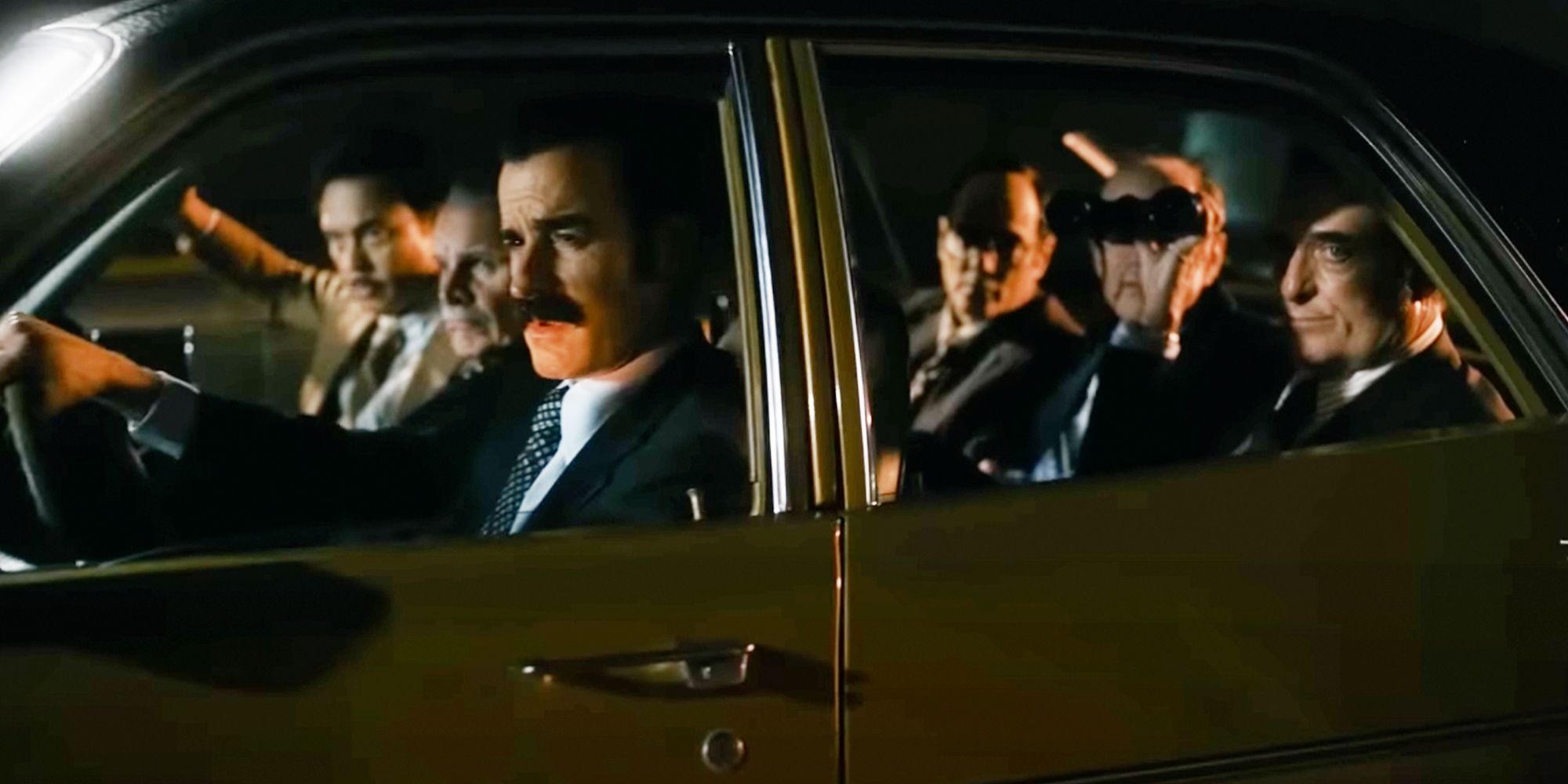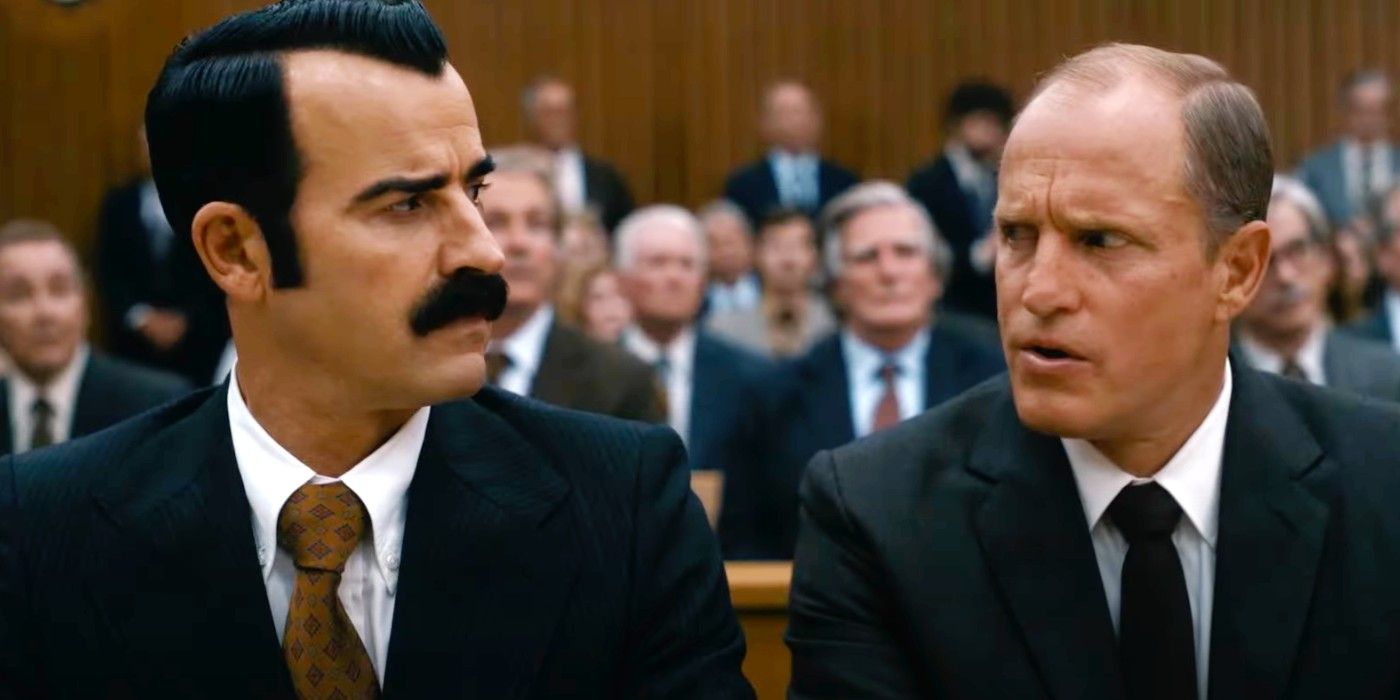HBO’s upcoming miniseries White House Plumbers is a new take on what is one of the most shocking events in United States politics. The 1972 Watergate break-in — or break-ins, as the show reveals — to bug the Democratic National Committee caused a sequence of events that eventually led to the resignation of President Richard Nixon, who became the first United States president ever to step down from office. The series tells the story with all of the humor and wit characteristic of its creative team, many of whom previously collaborated on Veep, which is one of the best comedies on HBO Max.
The rollercoaster that is the story of White House Plumbers is helped along by the series’ fantastic score, which was composed by Jeff Cardoni. Cardoni is a prolific film and television composer, who notably scored the Sam Jones documentary on Tony Hawk and will lend music to the upcoming Smartless podcast tour documentary. Cardoni’s evolving score for White House Plumbers is a thoughtful and smartly designed reflection of the failed operation's dubious highs and fantastic lows.
Jeff Cardoni spoke with Screen Rant about finding the tone of the score for White House Plumbers, evolving the music as it went on, and what to expect from the upcoming Smartless doc.
Warning: Some SPOILERS lie ahead for White House Plumbers
Jeff Cardoni on White House Plumbers
Screen Rant: Because White House Plumbers is a five-episode miniseries, the story is going to be more compact than a regular series and longer than a film. How does that affect your job as a composer?
Jeff Cardoni: I kind of looked at it like a long five-hour movie. I thought that's the way it had to be thought out, because it didn't feel episodic. It just feels like a movie that you kind of broke into parts. That's the way I thought through the whole thing, because that seemed like the only way to make it feel of a piece. It's also because the break-in is in episode 3, it kind of takes you on this journey from not-so-dark, to the pinnacle of what they thought they were trying to get, to everything [turning] really heavy.
Especially early on, I really love the tone of the score. There are moments where it's almost exaggerated spy music which, to me, mirrors the fact these characters seem to have some inflated sense of their own competency. Is that how you approached the score?
Jeff Cardoni: Yeah, that's very well said. I didn't want to make it funny; I wanted to approach it like a straight drama, even though it kind of takes you on a journey. They didn't get in until the fourth attempt to actually break in, so even though they were super self-important and super serious, they were kind of bumbling idiots a little bit. But I still wanted to play it straight every time, so I tried to play more of the spy aspect.
At the heart of it, they've given everything to the government, into Nixon, and to their career, much to the detriment of their personal lives and their actual lives. People died, and they basically threw their lives away for some people who were not there for them when they needed them, and it turned out to be not necessary at all. Nixon won by a landslide, so they did all this for nothing. It was a fine line from not playing it too sarcastic, or too comedic, and to have somewhere to go, so when [the music] actually starts going downhill with [the story], it can.
The hardest thing for me was the very first scene. You have to play it pretty straight, because you think they're going to get in, and then you find out. You kind of pull the rug out from everyone and say, "Okay, they didn't get in this time. It's going to take us a couple more episodes to get there." That was a puzzle, but I surely didn't want it to be funny, even though they were hilarious.
Were there other genre or spy things that you looked at, in terms of how you approached your instrumentation?
Jeff Cardoni: I think subliminally and consciously, All the President's Men was probably a touchstone for a lot of this, [as were] a lot of '70s by government thrillers [like] The Conversation. I think probably David Shire was a definite influence on what I was thinking of. It was also [figuring out how to navigate the score], instrumentation-wise. It's quite small and bumbling in the beginning, so I was trying to think of a way to have it expand from where they start.
With instrumentation, there was more of this '70s [feel including] bongos, and drums, and clavinet, and flute, and stuff that can play the more caper-y aspect. And, we had a small string section for the first half, where it was only 15 people. I tried to keep it more intimate. Then, as it got bigger and everything spiraled out of control, for the last episodes, we had a bigger 55-piece orchestra. I tried to, in the scope of sound, get bigger as the stakes got bigger and the drama got bigger. At least conceptually, that's what I was trying to do.
It was really a puzzle, actually. I never quite worked on something where it had to evolve sonically so much, but also be cohesive. I tried to do that with the scope and the instrumentation, so it still had the same tunes and the same melodies and everything, but it feels like it's getting bigger and heavier as the web of lies and the consequences got bigger and bigger. The end of [episode] 4 definitely threw me for a loop. It hits pretty hard.
I'm always curious, and you have these instruments behind you; how much of your scores do you typically play yourself? It sounds like you had an ensemble, so were you doing more on the demo side yourself and then bringing people in?
Jeff Cardoni: It's all acoustic stuff, so I do play a lot of things myself. Sometimes I'll replace them later. For the demos on this, I played upright (bass), I played piano, I played drums, [and] guitar. I have an autoharp that I used a bunch. It's hard on acoustic scores to demo the stuff properly so it sounds good, so I tend to just play it myself a lot. We had, obviously, fake strings until we started recording.
I also had a couple of soloists that I used that really brought stuff to life. I have a flute player named Katisse Buckingham, who played a lot of stuff in the theme song. He's infamous for the solo in Anchorman when Will Ferrell is up on the table doing the flute solo, so the guy is just a monster player. A lot of times you get so in this world of creating stuff here, that you want to tell everyone what to play, and to write every note. [With] Katisse, I know to kind of just unleash him and just let him [do this thing].
I also had a keyboard player, Jeff Babko, who's played with everyone. He played Hammond (organ), he played Wurlitzer, and he played clavinet. Again, the first time I had him play on stuff, I reined him in. I tried to tell him what to play, and I gave him all the simple parts. On this one, I learned, "I'll play the simple parts myself because I don't need him to replace them," and then I just say, "Jeff, do something cool here. Here's what I'm thinking."
He would bring stuff back, [and] I'd just start smiling when I heard it. I've learned to let people play to their strengths, and to let them have fun and bring something cool. So, on all of the heist-y stuff, especially in episode 3 when they're breaking in, and at the end, when all goes crazy, those guys just took it to the next level. It was just awesome.
This is very in the weeds, maybe. When you do something like that, do you just write a basic melody for them and then say, "If you want to improvise, do your thing"?
Jeff Cardoni: Usually. For the main titles and for the first cue, I wrote every note of that, even the little flute riff at the end that kind of takes you into every episode. That was written out, but when I was writing it, I'd used Katisse so many times [that] knew Katisse was going to play it and make it sound cool.
[It's the] same with Jeff; I did a couple clavinet things, like in the first cue in episode 1 when Woody Harrelson gets a call from the White House. It's the first time he goes in [and] there's a little grooving kind of thing.
I wrote the basic things, but then I said, "Jeff, here's the basic, but do your thing, because I've got the basic," Sometimes he'd take my chords, and sometimes he'd play them [exactly], but sometimes he'd something way cooler than I would have thought. It's fun. In [episode] 3, when all hell was breaking loose when they're breaking in and then they're getting caught, he brought some stuff where I don't know where he came up with it, but I was like, "Oh my God." There was a little clavinet riff that he did that sounded like a computer, and I used it, like, four times, because it was just so cool, and I never would have thought of it before.
There's a good mix of stuff written on the page, but then improvisation from all the people that played on stuff. That's when one and one plus one kind of equals three, sometimes. When you let everyone bring something more, it makes everything better. It's taken me a while to realize that, to not just write stuff and have people play it [exactly]. Whereas in the orchestra, then it's the opposite. They play what you say. But even [with] that, on some of the string stuff, we'd stop, saying, "Here's what I'm thinking, Can you do something like this?" and they would surprise you. It's fun to let people kind of bring something to the table creatively.
Obviously, this show is based on real events. Did any part of you want to do your own reading to further inform the score outside the script?
Jeff Cardoni: Only because I did not have any time, no. I did a lot of Wikipedia and stuff as I was going through it, because I didn't know some of this stuff, but I came on this thing in mid-October and we were [on] December 18, we recorded the first cue. There was no time.
But some of the things were fascinating. I didn't know how many times they failed. I didn't know about Hunt's wife. When you see that, it's pretty sad. There's a theme for Dorothy in episode 1, when she's riding the horse when you first meet her. It kind of became a family theme. Then he's dropping her off [and] their marriage is falling apart in episode 4 after the break-in, and she just can't take it anymore. [She can't take] his lies and his putting government over his family.
The same theme comes back in the car when she's basically leaving him and telling him that the marriage is over. He's trying to get her back, and it's too late. On one level, it's too late because she's leaving him, but five minutes later, her plane crashes, and she's left him for good. It's heavy. Again, conceptually, the score had to have somewhere to go, so we can get from, "Okay, these guys are just idiots. They're just so wrapped up in their mission that they don't care about their families and stuff," to "Oh God. They've lost everything because of what they did." To me, I wanted to play the family.
The family is the core of the story that we were telling about Watergate here, not the break-in itself, not the political aspect, but the cost. There are people's lives that are ruined by the powers above. We never see the cost that takes on people, and [we raise the question]. "Is the cost worth it?" To me, hearing [those in this story] talk about the radical left... you can insert Trump or Republicans in the script, and it would be exactly the same thing today.
[It's] kind of depressing and terrifying that, 50 years later, we're still talking about the exact same stuff. We haven't evolved as humanity to pass that yet, which is really alarming. So I definitely tried to play the heart more. That's why I thought we could bring a unique perspective to it that hasn't been told, [rather] than more of a political thriller aspect. We surely went there on some stuff, but there's no surprise in that because we know the story.
We know what's going to happen, but we don't know what they put their families through for the goal, which ironically ended up not mattering. He won in a landslide. They didn't have to do this break-in, and at the end of the day, no one was there to save them. No one's there that helped them. They threw their lives away, and they were just left hung out to dry. Was it worth it?
You wrote a theme for Howard and Gordon. Can you talk about your thought process in composing toward their relationship?
Jeff Cardoni: David Mandel, the EP, who also did Veep, was very adamant about wanting things to be thematic, which is great. Approaching it like a film, I thought we had the landscape to be able to do that. A lot of it started with those guys, David, Gregg Fienberg our producer and Len Amato from HBO, sitting in here with me playing stuff on piano. It's hard for someone to listen to you play something on the piano and be able to hear how that's going to work in the show. Sometimes that's rough. I ended up playing countless demos on piano, trying to come up with these melodies, and they weren't getting it. They weren't seeing how that's going to work in the show.
But, honestly, every theme that's in the show, the theme for Hunt and Liddy that's also in the main titles, the theme for Dorothy, the theme for Dita Beard, the theme for Liddy, all of those are played on piano and [are], like, the first versions. It just took 35 versions to go back to those ones, for me to be able to plug them in the show. Then, they were like, "Oh, that's cool." They didn't get it from just the demos in the beginning. It's gratifying at one point to explore and to try to find things, but sometimes what you think in your head is going to work, sometimes that does work, but it just takes a while to get it inside people's heads.
[With] the Liddy/Hunt theme in particular, that was a little snippet of this whole thing I was trying to sell to them. They heard this little part, and they were like, "That's memorable." Because you don't have these super-long tracking shots and stuff where you can really let a melody sing, I found in this what worked were these little snippets, [and] these little one- or two-bar fragments that we could use and repeat. You get these little earworms that you can kind of get in there. Sometimes you don't have a long place to have this big heroic theme, but I still wanted to have these things that can kind of play together, and, subliminally at least, tie things together.
I've heard your documentary work; I love your work on Tony Hawk: Until the Wheels Fall Off. What is the biggest difference for you in terms of scoring fiction or a dramatized show like this versus a documentary?
Jeff Cardoni: I think for documentary [work], the fun thing is [that] you think away from picture a lot. You sit at the piano and you come up with these ideas. Especially for Sam (Jones) on Tony Hawk; he's super adamant about getting the melody right first. There [was] a lot of me just sending iPhone piano demos back and forth, so that's fun. [Writing] the music is more in worrying about emotion or vibe than picture. I kind of enjoy that, because you're not worried about hitting picture, and things like that. Ironically, this show started the same way, with a bunch of piano demos. You can work out all the logistics of instrumentation and function later on, but if you don't have the little snippets in the beginning, [it doesn't work].
I'm doing another doc with Sam; they're doing a documentary about the Smartless podcast that I just saw the trailer for, which is cool. We did that going on a year ago. But [it was the] same thing; it was just a bunch of piano. The whole show ends up being pretty much piano, so it's super fun to kind of just not think about picture at all. I watched the thing and then I just forgot about it, and I had this surrealistic, impressionistic idea of what I thought the music could do.
For Sam especially, it's not what you're seeing. It's something else; it's like another character. I find that way more interesting than when the music is just like the icing on top of what you're seeing, especially in the Smartless thing. They're a bunch of funny guys and it's about comedy, but I just did this super emotional and sad piano longing, and the movie is shot in black and white. It's basically scoring a lot of the backstage and their in-between relationships and it was pretty effective and really surprising to see how Sam used it. It was fun.
Did you feel any desire or pressure to call back to the music in the podcast for the documentary? They have their own theme, and their own ad music, and stuff like that.
Jeff Cardoni: Well, no. That was my first question. But I did end up actually getting to do a version of it for the end of one of the episodes where I took it and I did this string quartet version with piano, [making] this more emotionally [charged version]. It was pretty cool. I had, like, four pianos doing all the little riffs, and then I added strings and it becomes a big montage-y thing. That was kind of fun. I hope that people who wrote it like what I did, because I don't know if they heard it, but it's cool.
About White House Plumbers
This five-part series tells the true story of how Nixon's own political saboteurs and Watergate masterminds, E. Howard Hunt (Woody Harrelson) and G. Gordon Liddy (Justin Theroux), accidentally toppled the presidency they were trying to protect.
Check out our other White House Plumbers interview:
White House Plumbers will premiere on May 1 on HBO.

